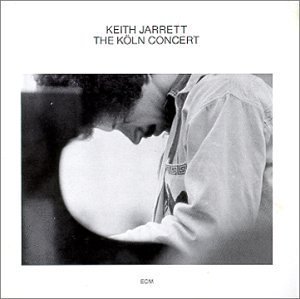
Books have been written about it. Films have used its more transcendental moments for heightened effect.
It’s an album that has changed people’s lives. And it is 40 years this week since the concert that became known as The Köln Concert took place.
Keith Jarrett when he stepped on to the stage of the Cologne opera house on 24 January 1975 was just 29. Little did he know that what he would perform that evening would when released eventually become the best selling solo piano album in recorded music destined to sell millions of records. Yet it wasn’t even Jarrett’s first solo piano album – Facing You from 1971 has that distinction – and nor would it be his last as his label ECM have made a speciality of issuing Jarrett’s solo recordings regularly, as recently as 2013 for instance reissuing Concerts: Bregenz/München recorded six years after Cologne, the fugue-like flights of fantasy and free form experimentalism clearly familiar from the earlier albums but never quite like Cologne
The 1975 concert began late in the evening, a half an hour before midnight, and was the first jazz concert ever to be staged in the North Rhine Westphalian city’s 1950s-era opera house, sited on Offenbachplatz. The record finds Jarrett compensating for a less-than-satisfactory Bösendorfer baby grand. According to the official Bösendorfer version of events the stagehands had mixed up the Imperial grand intended for the concert, which was in the cellar, with a black baby grand used for rehearsals and brought it on to the concert stage.
John Fordham in an article for The Guardian in 2011 describes how the album begins: “From the glistening, patiently developed opening melody, through sustained passages of roaring riffs and folksy, country-song exuberance, the pianist is utterly inside his ongoing vision of the performance’s developing shape – a fusion of the freshness of an improvisation with the symmetries of a composition that’s central to the album’s communicative power.”
And these four improvisations that only have the most prosaic of labelling, divided into parts 1, IIa, IIb, and IIc, and which vary in length between just under seven minutes and a whopping 26 minutes somehow still retain a powerfully captivating presence all these years on contributing to the once-in-a-lifetime magic of this historic performance. Stephen Graham
German radio station WDR devotes a programme to The Köln Concert on Saturday evening